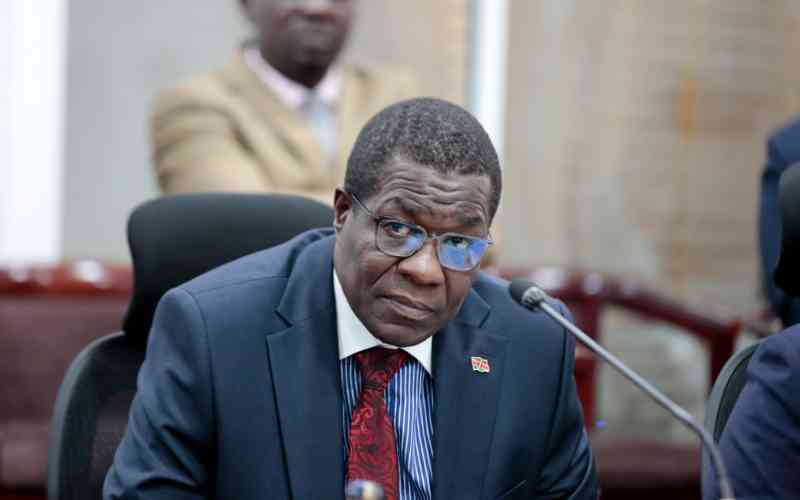
US-based lecturer Peter Ndiang'ui has warned East African leaders against pursuing power power to rule the people with an iron fist.
Prof Ndiang'ui cited the election of Tanzania President Samia Suluhu as an example of leaders in the region who want to maintain power through intimidation.
In a statement, Ndiang'ui said what happened in Tanzania during the presidential election signaled a decisive shift in consciousness and public expectation over what they want.
“A profound political reckoning is sweeping across East Africa. In Kenya, Tanzania and Uganda nationwide demonstrations led by predominantly by Gen-Z signal a decisive shift in civic consciousness and public participation,” said Ndiang'ui
He said the youth in the region who are informed, connected and are unafraid, have made it unmistakably clear to Sulu, Presidents William Ruto, and Yoweri Museveni they would not entertain dictatorship.
“The central reality confronting East Africa is unavoidable; legitimacy cannot be coerced. Governments that rule without the consent of the governed eventually face a reckoning. The region is approaching that threshold. The youth are not retreating. Civil society is not silent. The people are no longer afraid,” said Ndiang'ui in a statement.
He noted that an alternative model for the youths exist in Ibrahim Traore of Bokina Faso who has demonstrated the leadership they want grounded in public trust, national dignity and accountability.
“Traore governance challenges the fatalistic narrative that Africa must choose between authoritarianism and chaos,” said Nding'ui.
Further, the future in the region will not be inherited by those who shout loudest but by those who stand with conscience, dignity and the people themselves.
“There is no rest for the wicked leaders in the region who govern against the will of their nations,” noted Prof Ndiang'ui
He said those who retain power by intimidation must know that they have lost the moral authority to lead their countries.
The don insisted the tone and demeanour of the region’s leaders has shifted dramatically because some public speeches are increasingly being devolved into shouting matches, defensive rants, and emotional confrontations with citizens and critics.
He pointed out these kinds of speeches are not the language of leadership—it is the rhetoric of leaders who feel power slipping away.
He explained that when politics of persuasion fails because the truth is insufficient, and when legitimacy has evaporated, what remains is volume.
“In Tanzania, President Samia Suluhu appears unwilling to recognise that the political moment has changed. The signs are unambiguous and unmistakable; the public is no longer willing to be governed without accountability, transparency, or respect. The writing is on the wall,” said Ndiang'ui
Stay informed. Subscribe to our newsletter
He stressed that the call for peaceful transition is not an act of hostility, but of wisdom maintaining that leaders throughout history who have recognised when their mandate has expired have secured their dignity and their legacy.







